In Northeast Georgia, roughly 15 minutes from Helen, sits a sprawling 14-acre property called Five Freedoms Farm. It’s a haven for animals in need, a sanctuary for senior dogs, and a bridge between the animal rescue world and the vibrant Deaf community in the South. Now in its 15th year, this modestly sized nonprofit is a beacon of hope thanks to its founders, Nancy and Jessie Romer.
Both seasoned sign language interpreters, Nancy and Jessie are motivated by a shared passion for animal welfare and a commitment to the Deaf community. Spurred on by these pursuits, they have defied the odds to create a successful organization that relies solely on donations and volunteer work.
Find out more about the origins of Five Freedoms Farm, their work with the Deaf community, and what animals you can look forward to visiting at the farm the next time you’re in Georgia!
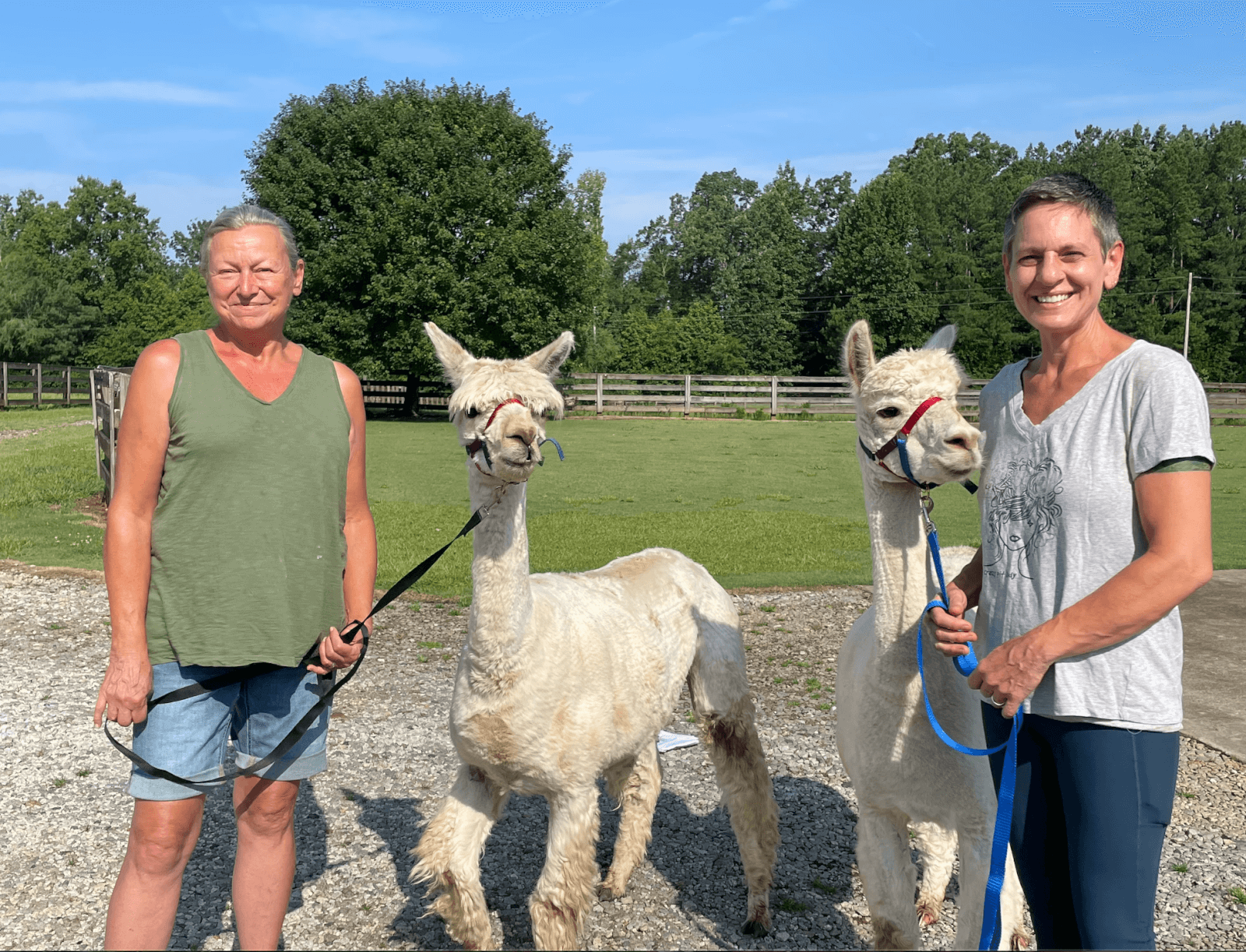
A Chance Meeting
Nancy and Jessie’s journey began in Loganville, a suburb of Atlanta. Meeting through their sign language interpreting careers, the women connected on many fronts, including a shared love for animals. “We were both the kind of people who would pull over for a stray dog,” Jessie explains.
The women also bonded over their love of — and deep roots in — the Deaf community. “My parents are deaf,” says Nancy, a proud CODA (Child of Deaf Adult) who grew up signing with her parents. Impressively, she later served as Georgia’s first public school interpreter!
Nancy’s interpreting career began when a court case mandated access for Deaf students, setting her on a path to advocate for Deaf accessibility in the public school system.
“When I came up, it was right after the law was passed. The law itself talks about a lot of things, but it says that if you’re Deaf — if you’re disabled — any agency that’s federally funded must provide access. When people think about access, they think about ramps and elevators. But, people who wanted to attend a public university or school needed access. And that’s how I got started. That was the beginning of my interpreting in a professional way.”
Jessie also has a remarkable career in sign language interpreting, working for many years with a Deaf-led phone company that offers video relay services.
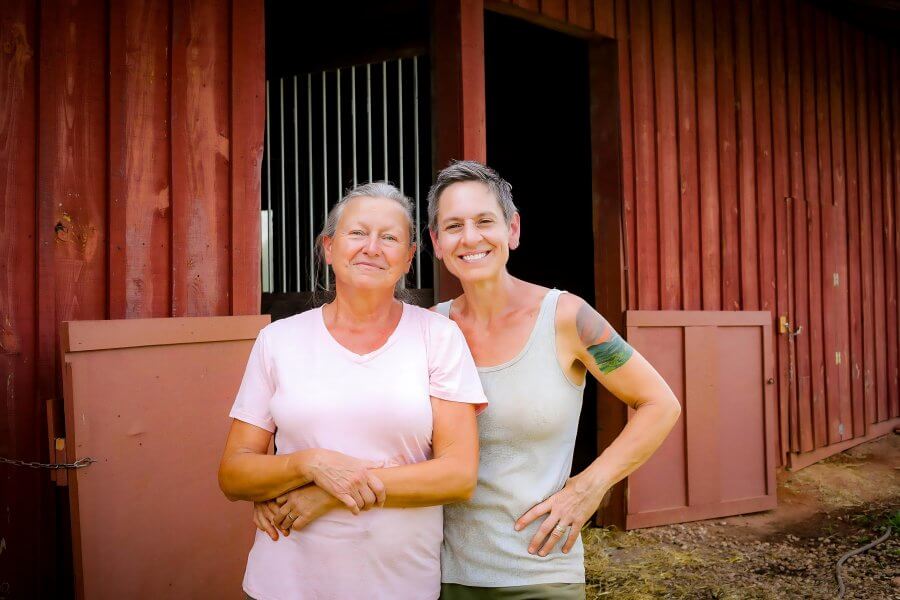
Great Challenges, Greater Rewards
Hurricane Katrina sparked a desire for the pair to build animal welfare into their shared future. “We started taking in dogs or rehoming them or helping out — very informally — for the first three or four years we were together,” says Jessie. “But when Hurricane Katrina hit, we hooked up with a group called Noah’s Wish, an animal rescue out of New Orleans.”
Traveling to New Orleans made quite an impact. “They had a warehouse, and they were housing hundreds of dogs and cats pulled out of the floodwaters,” she explains. “We drove down three times that fall, from August through October … volunteering to walk and feed the dogs, clean the crates, whatever.”
Jessie further trained on nonprofit rescue operations and honed her vet tech skills by volunteering at a spay-neuter clinic on a 45-acre farm. “After about four or five years [of volunteering], I thought, ‘You know what? We can do this. We can found our own nonprofit.’ So, in 2009, we did. We founded it under a different name at the time — Bliss Animal Haven.”
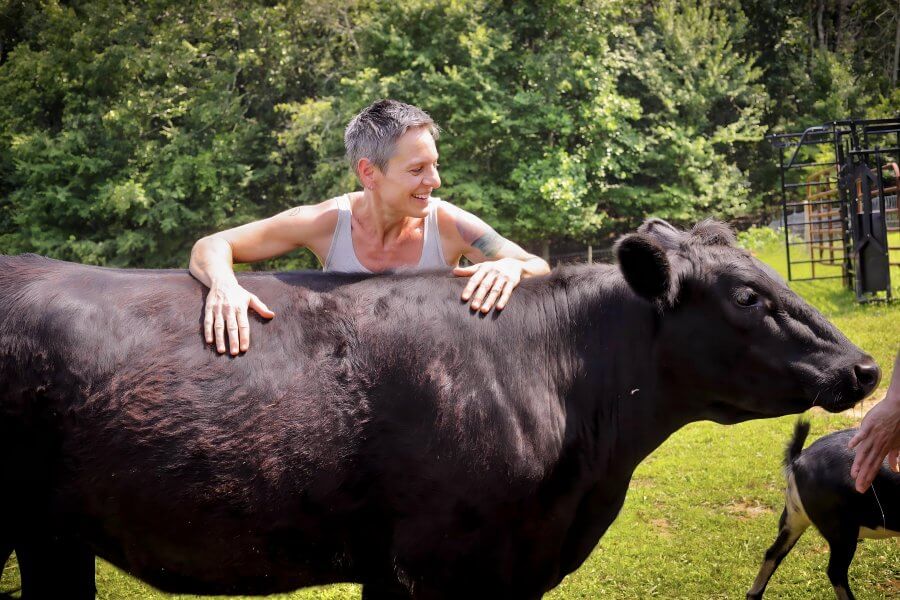
Meanwhile, the housing market bubble posed challenges with maintaining their Loganville home and land, and the COVID pandemic nudged Nancy into early retirement. But sometimes, the greatest challenges lead to the greatest rewards.
Undeterred by the difficulties of maintaining their Loganville property, the women began looking at land elsewhere in Georgia where they could take their nonprofit to the next level.
The Five Freedoms
Their move to the countryside brought its own additional challenges, but it also brought a renewed sense of purpose as they honed in on the ways they hoped to expand their mission. The result? Bliss Animal Haven morphed into Five Freedoms Farm, and the vision grew to include the Deaf community.
The farm’s name is inspired by the Five Freedoms of Animal Welfare — freedom from hunger and thirst, freedom from discomfort, freedom from pain and injury, freedom from fear and distress, and the freedom to express normal behavior. The five freedoms, which originated from poor meat industry conditions in the ’60s, act as a sort of Bill of Rights for animals.
Nancy and Jessie took that concept a few steps further, reinterpreting it to encompass values that are applicable to both animals and people.
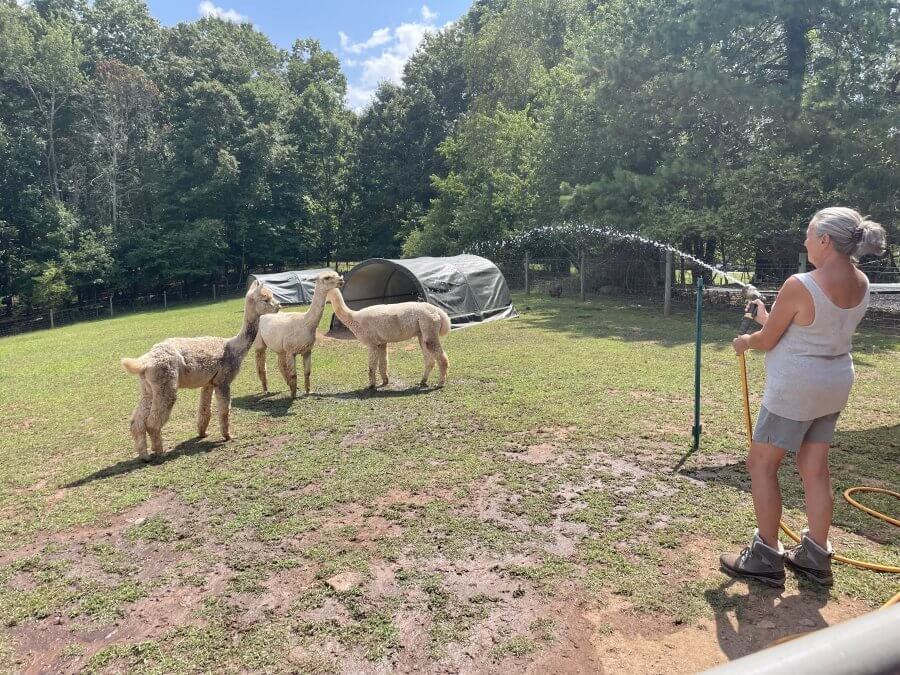
To date, the two women have taken in roughly 760 animals, and Five Freedoms Farm has expanded its mission well beyond dogs and cats. They now welcome a diverse array of farm animals, such as pigs, alpacas, and even mini horses, each with their own story. “A lot of the animals are blind; a lot of them needed a limb removed or have some chronic health condition or heart failure,” Jessie tells us. “A lot of the dogs need hospice. They’re in their final weeks … they’ll live with us until it’s time.”
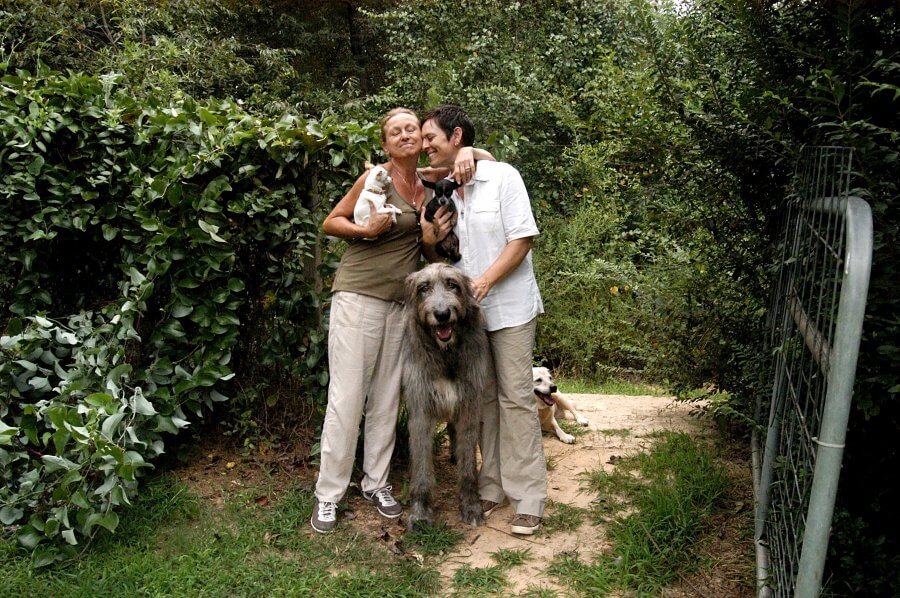
A Vision for the Future
While helping animals was always the point — it was only half of the puzzle. “The impetus was creating a place where the Deaf community can work in partnership with us, ” Jessie says. “We host service learning days for Deaf school kids and bring in Deaf community members for multigenerational learning in our space.”
And there are lofty plans for the future, too. “We want a Deaf vet and a clinic for Deaf people to bring their dogs. We want a lodge for Deaf organizations to come and meet; we want to run Deaf camps and have partnerships with stores in town — all of the services that the farm uses would be in partnership with Deaf-owned businesses,” says Jessie. “It would be Deaf-centric all the way. That’s the big vision.”
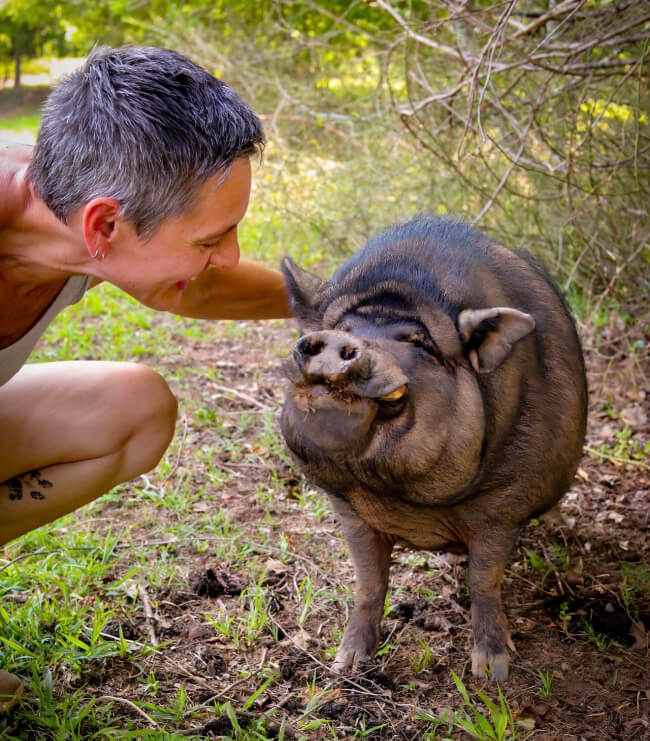
The two admit that this concept frequently begs the question: You two are hearing, and you’re going to do this for Deaf people?
“It’s a huge vision, but the whole purpose of the nonprofit is to serve as a little nest. In theory, all the activities that need to happen on a farm would be done by Deaf people and Deaf-owned businesses. There would be a lot of collaboration and partnerships, extending to the broader community, which would then see a different way of understanding what Deaf people are all about,” explains Jessie. “We want to disrupt the narrative that Deaf people need help, that they aren’t capable of doing everything anyone else can do, or that they need to be fixed.”
Nancy, who has deep roots in the Deaf community and was raised by Deaf parents, adds, “Part of the five freedoms is being free to be around your own kind. We want a space for that for people who are Deaf. It’s very important for the people, the language, and the culture to be shared. To be intergenerational.”
We can’t wait to see the vision of Five Freedoms Farm grow. Pay them a visit next time you’re in the area!
**********
For a daily dose of Style + Substance — subscribe to StyleBlueprint.



















